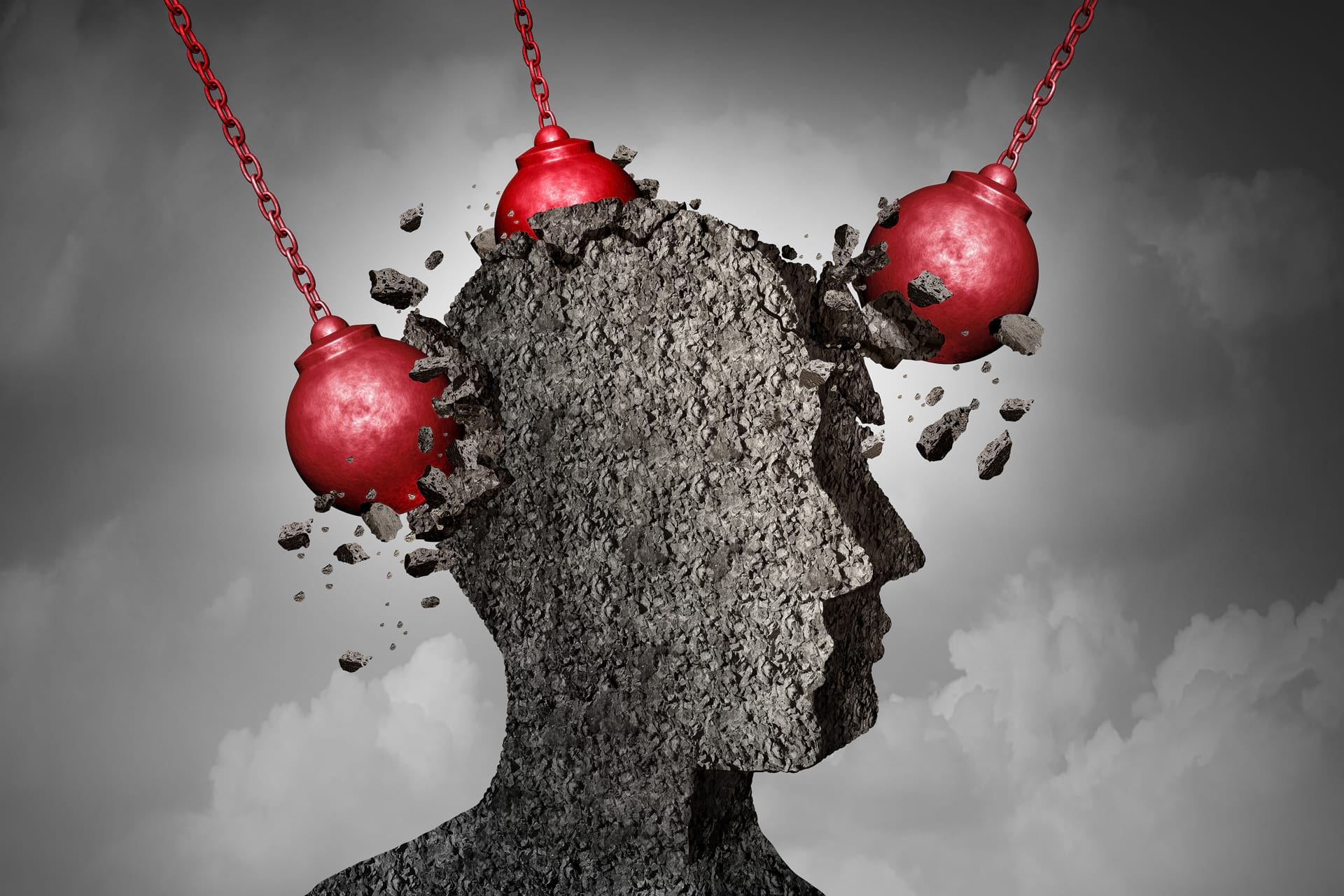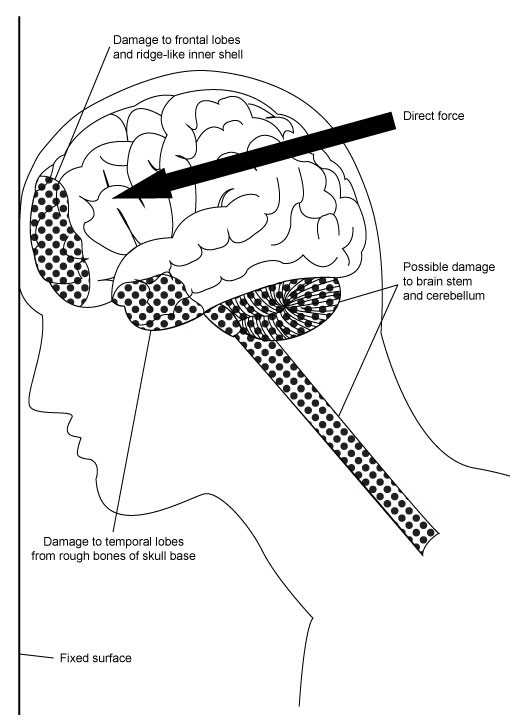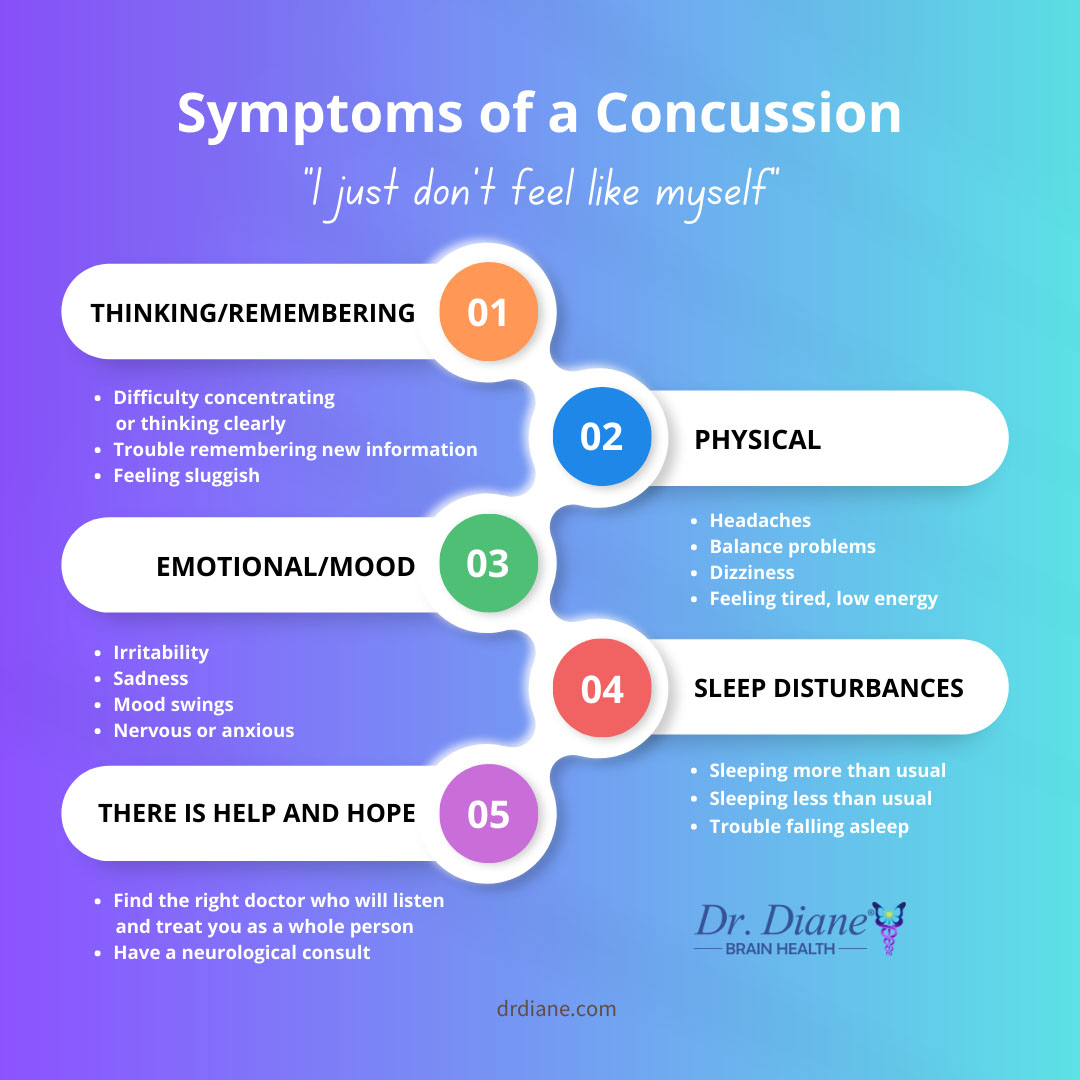What is a Concussion?
Concussions are the most common type of brain injury. A concussion, called a mild traumatic brain injury (mTBI), is an injury to the brain causing temporary loss of normal brain function. You do not have to lose consciousness to experience a concussion. Concussions can cause short-term and long-term problems and many physical, cognitive, and emotional symptoms.
What Causes a Concussion?
You do not have to hit your head to get a concussion. Concussions are the result of a blow, hit, bump or jolt to the head. They can also happen when the head and neck suddenly snap back and forth, jostling the brain. For example, imagine an aggressive push to the chest, an accident-causing whiplash, or some amusement park rides. These produce a back-and-forth motion with force strong enough to cause shearing and tearing of the nerves in the brain. This activity results in a concussion.
Leading causes of concussions:
- Automobile accidents
- Falls
- Sports or recreational activities
- Assault
- Domestic violence
- Shaken baby syndrome
- Blast injury
- Playground injury
How do I know if I have a Concussion?
Sometimes it is difficult to tell if a concussion occurred. There aren’t any visible signs. However, there may be cuts, scrapes, and bruises from the incident or accident that caused the trauma.
You may have a concussion if you:
- Feel confused
- Feel disoriented
- Have trouble remembering
- Have blurred vision
- Appear dazed
- Are dizzy
- Have lost consciousness or passed out
- Take longer than usual to answer questions
- Have slurred speech
- See ‘stars’
These signs of concussion usually go away shortly after you’re injured. However, you may experience nausea, vomiting, headache, dizziness, and become tired for several hours after the injury.
Symptoms of Concussions
Many people, including doctors, use the term “mild concussion.” There is no such thing. It is a mild traumatic brain injury.
Some people may not have any symptoms. On the other hand, other people may have symptoms that last for hours, days, weeks, or longer. If symptoms continue for over a week after the injury occurs, it is called Post-Concussion Syndrome (PCS).
A concussion may cause physical problems, such as tiredness, headaches, dizziness, or nausea. A concussion can also affect the way you think, which is a cognitive symptom. As a result, you may be confused, have trouble thinking, remembering words, or have difficulty focusing.
Some people have emotional issues after a concussion, such as feeling depressed, anxious or moody. Sometimes a concussion will cause you to have behavioral problems. For example, you’re more likely to get into an argument, not be able to control your temper, or feel more impatient than you were before the injury.
Concussion Symptoms by Type
- Fatigue
- Sleep disturbances
- Hearing problems
- Headaches
- Blurred vision
- Dizziness
- Nightmares/Flashbacks
- Nausea and vomiting
- Falling asleep unexpectedly
- Hand or leg tremors
- Sensitivity to light and/or sound
- Sexual dysfunction or loss of sex drive
- Gait imbalance
- Ringing in the ears
- Loss of taste and smell
- Confrontational attitude
- Explosive temper
- Fearfulness
- Impatience
- Thoughtlessness
- Hypervigilance
- Depression
- Agitation
- Apathy
- Irritability
- Fear of “going crazy”
- Frustration or anger
- Guilt or shame
- Feelings of helplessness
- Anxiety
- Frequent mood changes
- Distractibility
- Disorientation
- Temporary amnesia
- Problems with speaking
- Poor judgment
- Slow thinking
- Inability to focus
- Trouble remembering what you heard
- Word finding problems
- Confusion
- Long or Short Term Memory Problems
Symptoms often do not go away if left untreated. For example, you may experience symptoms from an injury that happened years ago. However, it is never too late to get treatment.
Treatment for Concussions
If you suspect you have a concussion, it is best to call your doctor or go to the hospital. Unfortunately, many people do not take concussions seriously, including some doctors. If a concussion is left untreated, it can cause long-term issues.
Proper treatment is essential and can help prevent more serious problems. There are many effective treatment methods for symptoms of concussion. However, every injury is different, and therefore treatment is not one-size-fits-all.
How We Uniquely Treat Concussion Symptoms
Unlike other doctors, Dr. Diane® and her integrative team of Brain Health Experts specialize in conventional, complementary, and alternative methods of treatment. Using the 5 Prong Approach, we develop customized treatment plans based on your unique needs.
Using the latest methods and cutting-edge techniques such as neurofeedback, Dr. Diane® can help you regain your life.






